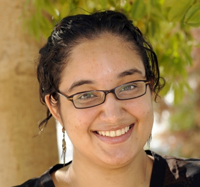U.N.-Adopted Guidelines Show International Recognition of Need for Greater Protections for Youth in Juvenile and Criminal Court Proceedings

Photo by SVLumagraphica/Photos.com
The U.S. Department of Justice (DOJ) recently celebrated the publication of the United Nations Economic and Social Council's adoption of the First International Principles and Guidelines on Access to Legal Aid in Criminal Justice Systems. DOJ praised the Guidelines, calling them "a significant milestone in the global development of fair and just systems of criminal justice."
Notably, the Guidelines emphasize the special vulnerability of children in conflict with the law. (In the United States, these are children who are arrested.) The Guidelines single children out as a group entitled to special measures and additional protections. In doing so, the new Guidelines not only recognize that "children should have access to legal aid under the same conditions or more lenient conditions as adults," but they also reaffirm many of the goals toward which Juvenile Law Center strives on behalf of children in the criminal and juvenile justice systems. These goals are in bold below:
1. Minimizing inappropriate or unnecessary court and system involvement: The Guidelines promote, where appropriate, "diversion from the formal criminal justice system" and "the use of alternative measures and sanctions to deprivation of liberty." Children should always have the right to legal aid at every stage where diversion is applied; countries should ensure that deprivation of liberty is "a measure of last resort" and is used for the shortest appropriate period of time.
2. Promoting fairness in the courts: The Guidelines ensure that legal aid is provided in such a way that youths' developmental needs are met. Information on legal rights should be provided to children "in a manner appropriate for the child's age and maturity." The Guidelines encourage establishing measures to ensure that judicial proceedings are conducted in an "atmosphere and manner that allow children to be heard either directly or through a representative." The Guidelines acknowledge that the need to consider the child's age and maturity may "require modified judicial and administrative procedures and practices."
A child also has the right to consult freely with any parents, guardians and legal representatives, and the Guidelines prohibit any interview of a child in the absence of his lawyer, other legal aid provider, or parent or guardian.
3. Recognizing fundamental human rights protections: The Guidelines establish that the "best interests of the child shall be the primary consideration" in all legal aid decisions. International law does not specifically define the "best interests of the child" standard, but the standard may be understood by looking at how it is used in the Convention on the Rights of the Child, the most prominent international statement of children's rights. As Thomas Hammarberg, Commissioner for Human Rights, Council of Europe, observed in 2008: [I]t is in the best interests of the child to: receive education (Art. 28); have family relations (Art. 8); know and be cared for by his or her parents (Art. 7); be heard in matters concerning him or her (Art. 12); and to be respected and seen as an individual person (Art. 16). In the same way, the Convention states what is not in the best interests of the child: for instance, to be exposed to any form of violence (Art. 19); to be wrongly separated from his or her parents (Art. 9); to be subjected to any traditional practices prejudicial to the child's health (Art. 24); to perform any work that is hazardous or harmful (Art. 32); or to be otherwise exploited or abused (Arts. 33-36).
As a result, legal representation must respect all fundamental rights of children, including those rights meant to ensure children a voice and the role of the family in the child's life. Such representation must also be "accessible, age-appropriate, multi-disciplinary, effective and responsive to the specific legal and social needs of children," to ensure that each child receives the special protection to which he or she is entitled.
The Guidelines are not only a significant milestone regarding fair and just representation for indigents, but they are also the latest example of the international community's continued recognition of greater protections for youth at all stages in juvenile and criminal court proceedings.
 Kacey Mordecai joined Juvenile Law Center in 2011 as one of Stoneleigh Foundation's Emerging Leader Fellows. She is working on the Integrating International Human Rights Law with Juvenile Justice Law Project, which will create resources for the use of international human rights arguments to promote juvenile rights in the domestic sphere.
Kacey Mordecai joined Juvenile Law Center in 2011 as one of Stoneleigh Foundation's Emerging Leader Fellows. She is working on the Integrating International Human Rights Law with Juvenile Justice Law Project, which will create resources for the use of international human rights arguments to promote juvenile rights in the domestic sphere.